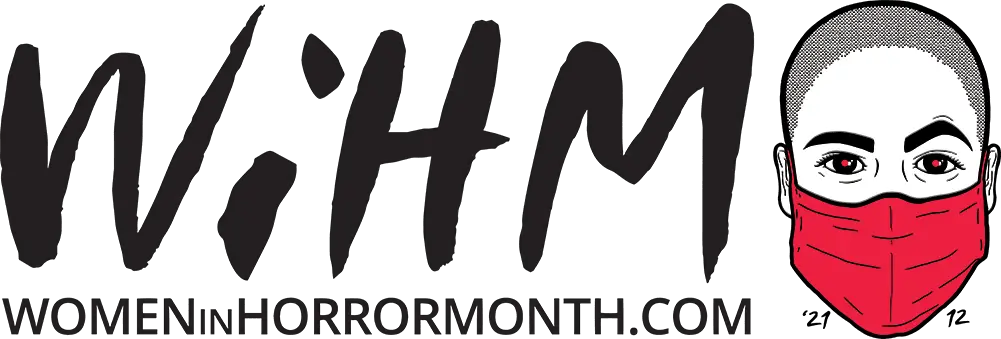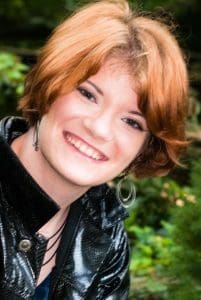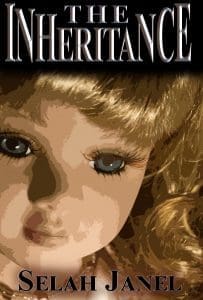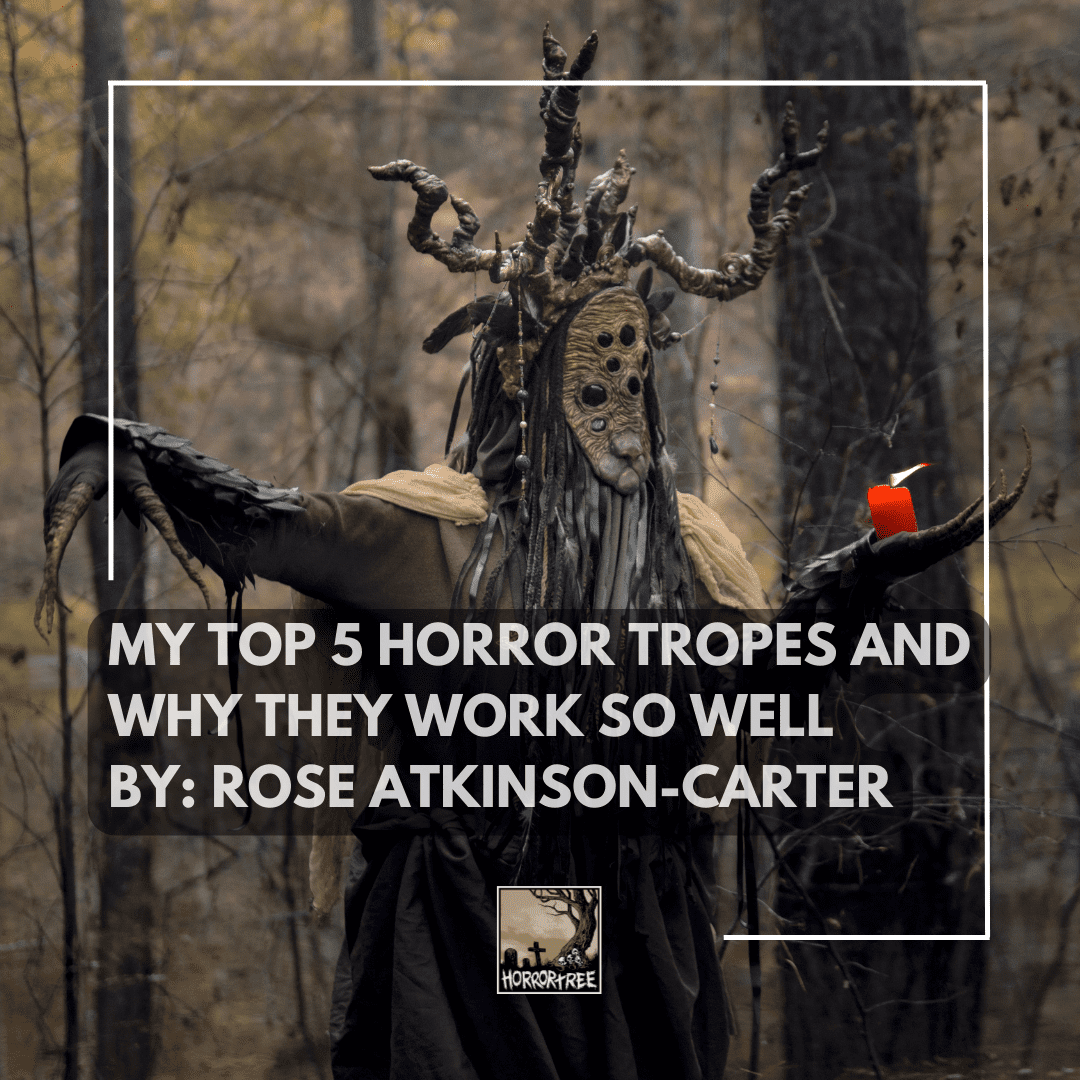
Welcome to The Horror Tree, and thank you for participating in Women In Horror Month. First, tell us a bit about yourself and your interest in horror.

Thanks so much for having me! I write in a few genres, but horror and dark fantasy hold a special place in my heart. There’s just so much possibility in horror, so many what-ifs, that it really opens itself as a genre to unlimited opportunity for ideas. There’s something really interesting about exploring visceral, terrifying situations (that may or may not be possible) and the emotions they provoke in a relatively safe way. My background is in theater, and I’ve built and designed costumes for about twenty years, so creativity and the love of story has always been part of me. Growing up, I was the biggest scaredy cat, but there was still something about horror that fascinated me. I’d sneak books here and there or read the back of video boxes in the rental places when my parents weren’t looking. It all bothered me, but a lot of the concepts fascinated me, and that dual reaction really made me wonder what was going on. Later on, as I grew up and really started reading and watching more, I was impressed by just how many subgenres there are and how they play on your mind in different ways. Everyday life can be scary, especially now, but there’s something cathartic about taking that same fear and putting it into a different situation that you either won’t go through, or you at least know/hope that things may work out, Even if a story doesn’t end happily, there’s still that release, that catharsis, that I think we don’t always get in our own lives.
Why is Women In Horror Month important, and what do you say to someone who says ‘Oh, I don’t care if it’s by a man, a woman, etc., as long as it’s a good story’?”
I get the reasoning for that – I used to be one of those people – but as I started writing, I realized that the authors I talked to online or at cons didn’t mesh up with what was presented to the rest of the world a lot of the time.People use the go to example of Anne Rice or Shirley Jackson, sometimes Mary Shelley, but those are three extremely well-known women within the whole history of the genre. Yes, Katheryn Bigelow directed Near Dark, but if that’s your one example vs the sheer amount of women who are writing or in other horror media, there’s a problem. So often, they’re not given the same marketing opportunities, the same placement in bookstores, the same offers. That’s improving, especially given how the creative world is having to evolve and adapt in general, but just because you can name an extremely well-known example doesn’t mean there’s fair representation. All horror doesn’t come down to Stephen King on the male side – there are plenty of other male authors who get space, ranging from him down to midlist and indie. Those lesser known male authors work hard, but they fit the image of what people have come to expect from a horror writer or filmmaker vs me, who looks like I could host a children’s television show. And I think there’s still the stigma that plots that women come up with won’t connect with men or the market in general – it’s similar to the fight in young adult literature that boys don’t want to read about girl protagonists. Sure, a good story is a good story, but if that’s the case, why is it so much harder for me to get onto horror panels if they’re not ‘women in horror’ themed? Why do I have to google and dig for women horror authors and directors instead of being able to rattle off a list the way I could with names like Brian Keene, Clive Barker, Wrath James White, Neil Gaiman, Joe Hill, John Carpenter, Wes Craven, Romero, etc etc (just off the top of my head) PLUS all the horror comic creators PLUS the mid and indie authors who people fall into. Why is it harder to walk into a bookstore or look at online lists and have horror come down to Anne Rice for women? It’s not because we aren’t working our butts off in the same way – I know a lot of women creators who bend over backwards and hyper extend themselves to try to get opportunities. And beyond that, whether it’s at cons or in general, why is one of the go-to assumptions that if women are in horror they need to present a certain look or resemble a scream queen vs all the dudes who can roll in wearing a t-shirt and jeans and be taken more seriously? Publishing is an extremely hard game as it is, and I feel like we as women have to work harder just to be able to get taken seriously, never mind trying to get reviews or promotional opportunities. I have a lot of great things to say about the horror community and in the author end of things, I’ve gotten a lot of support, but I’m under no illusions that I’ve got to work harder and put myself out there more to even slide a foot through the door. Until people can rattle of women’s names in their favorites lists just as easily, until we don’t need to remind people that we exist and are doing awesome work, it’s an issue.
Who are some Women In Horror (or other women) who have influenced your work, and why?

Nancy A. Collins was a game changer for me. Reading the Sonja Blue series in my twenties made me realize it was okay to go harder, to be bolder, to go darker, at a time where I was convinced that those kinds of plots were just things I couldn’t write. I love her balance of really unsettling concepts and graphic imagery, and she’s done so much to add to what we’d consider urban fantasy. She knocks it out of the park. Elizabeth Engstrom has become a huge influence. She’s almost literary in her approach and much more restrained. You won’t get a ton of gore, but she’s hands-down written some of the most disturbing work I’ve ever read. When Darkness Loves Us is one of my all-time favorite horror novels, and what she does in such a tight wordcount is incredible. Her short stories are like Ray Bradbury but pushed further off the cliff, going where he wouldn’t have dared, and while Northwoods Chronicles is more subtle, the underlying themes are creepy and haunting. She’s so good at portraying emotions in her characters in vastly different ways. I’m slowly expanding my reading list and getting into the work of Lucy Snyder and Mercedes Yardley. – they’ve been inspiration to me personally, and I’m really lucky to have been able to turn to them with questions and just have that kind of support. Nicole Givens Kurtz is a hell of a writer and she’s also been so amazing to me, personally. It’s honestly just awful that more people don’t know her work and all she’s doing to help open up opportunities for women, and especially women of color, in horror. I’m a sucker for Horror Addicts – Emerian Rich has been incredible to me, and her work on the podcast is just so much fun, I love it! Nina D’Arcangela really kept me going with her flash prompt project as I was working through a lot personally and wondering if I should keep pursuing my writing. It blows my mind all that she does! Though I’ve had to step away from it a bit, the Ladies of Horror group on facebook has been such a great space for me as I started out and then re-started my writing journey. So many awesome women hang out there, and provide so much insight on the genre.
Needless to say, there are TONS of amazing women in horror and yes, yes I would name check all of them if I could.
2020 will probably be remembered as a TERRIBLE year for many of us; tell me something GOOD that happened in the past 12 months.
2020 was really a year of plummeting and rebuilding for me. I’ll have a lot of material from that year, eventually. It did teach me to appreciate the good things, no matter how small. Just being able to be at home and get back in touch with who I am was a blessing in disguise. I was able to connect with friends online and on the phone that I hadn’t talked to in years and deepened friendships with those I already knew because that becomes important when you just don’t know what’s around the corner. Creatively, winning Best in Blood award from the Horror Addict Podcast was a total surprise that made my year! And just plain realizing that I could still take a breath and reinvent myself even though things were difficult has given me hope.
What have you got planned for Women in Horror Month, and the coming months of 2021?
Right now I’m going through so much personal rebuilding, I’m not killing myself doing anything, but I’ll definitely promote others and speak out as I can! I’ve been subitting a lot more lately, and have some stories coming out in the next two years that I’m really excited about, so personally it’s about me getting back to it.
Is there anything else you’d like to tell our readers? Thanks for participating in Women in Horror Month!
Thanks for having me! Horror is a big genre filled with amazing people. Not only is there room for everyone, but there’s room for women to have the same opportunities as others. Go find women authors or filmmakers or media people you may not be aware of – google and social media make this easy these days – and surprise yourself with how incredible their work is.
twitter – @selahjanel
insta – @selahjanel99
- About the Author
- Latest Posts
Selene MacLeod is a night operator and sometime writing hobbyist. She holds a BA in Communications from Wilfrid Laurier University and resides in Kitchener, Ontario. Her work has appeared in several horror and crime fiction anthologies, most recently Shotgun Honey, Drag Noir (Fox Spirit Books); and the upcoming Freakshow: Freakishly Fascinating Tales of Mystery and Suspense (Copper Pen Press), and Tragedy Queens (Clash Media).She’s most excited about editing a charity anthology for Nocturnicorn Books called Anthem: A Tribute to Leonard Cohen, due out late 2017.















